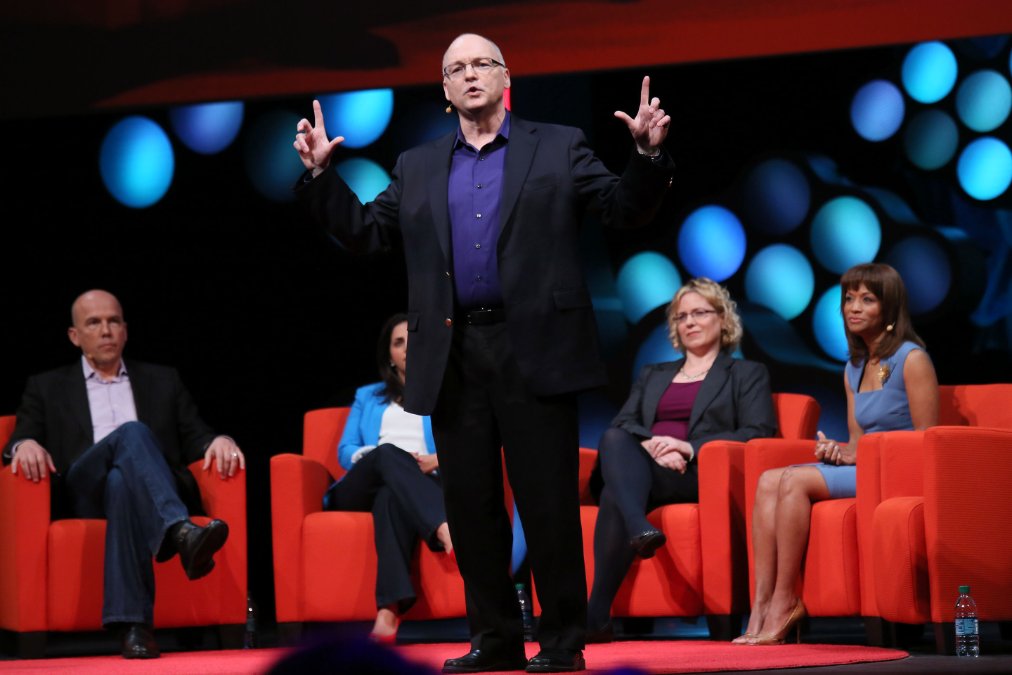Are all innovators created equally? The open-source innovation movement wants us to believe that they are, that the more voices we hear and the more ideas we share, the greater our creative potential will be. That’s why populism has emerged as the defining force of post-millennial innovation: organizations value collaboration over specialization as they look for the next big idea.
What started in the 1980s as a revolution in software development–when designers shared source code and embraced the notion of free redistribution–has now become the norm in all sectors. No matter where you go, you’ll hear leaders utter the clever, pithy names of these wildly popular approaches: collaborative open innovation networks (COINS), creativity clusters, crowdsourcing, crowdfunding, idea markets, innovation jams, and innovation tournaments.
But the truth is that, for all the doors that open-source innovation opens, it closes many more. While these collaborative methods routinely generate an abundance of ideas, there is scarce evidence that they generate innovation of superior quality than those developed by smaller and more elite groups of domain experts. In short, they create more stuff, but the stuff isn’t necessarily more important and it doesn’t always have a major impact on the field. This is what the great polymath Sir Francis Dalton taught us with his concept of regression to the mean: large groups of people tend to average out to the middle–collectively, they produce things that are vanilla.
In reality, innovation is the opposite of this: it is a form of positive deviance that pulls away from the norm. The most valuable innovations are the ones that are the most unique. Consider the game-changing genius of DaVinci or Einstein or Steve Jobs. These are nonconformists–precisely the kind of visionaries who don’t fit into the democratic groups encouraged by open-source innovation.
So how can you embrace the inclusive spirit of collaboration without succumbing to its tendency to eliminate deviance? Here are three strategies to stay original in an egalitarian world.
Drop the “everyone’s opinion is equal” faade. You probably learned in gym, math, or art class that we’re not all equally skilled or expert. While we all have our own strengths (and weaknesses), all those abilities are not relevant in every situation. Once you determine the abilities you need for a particular project, prioritize the contributions of those who have the expertise. Ask all of your social media followers how to install a furnace and you’ll get tons of advice. If you listen to it, though, chances are the fire department will be paying a visit to your house. Rather than eliciting the opinions of non-experts, it’s best to call someone who is actually qualified and experienced to put a furnace in your house. The same is true of the highly specialized tasks and areas of inquiry associated with innovation initiatives.
Identify the real domain experts. Expertise isn’t always proven with an advanced degree. Real-life experience is sometimes more important than knowledge acquired from intellectual study. Remember that insight and experience are two different realms of proficiency. For example, a mother of five bright, well-adjusted kids would be a good person to consult about a new product that teaches children to read. How do we find these domain experts? Pay attention to who talks to whom. Figure out whom others turn to when they need advice on a specific issue. Observe this like an anthropologist and see who’s literally talking or try following the e-mail thread. Whenever someone asks me a question I don’t know the answer to and I forward it to the appropriate expert, I’m always fascinated to retrace the thread at the end, to see how exactly the question got to the person who could actually answer it. The path is often a surprising one.
Mix and match until you find your winning team. Collaboration works best when we find the right combination of thinkers and doers. Put the highly experienced alongside the inexperienced. Experience brings the wisdom of caution–seasoned veterans won’t do things that they know, from having done them before, won’t work. Inexperience brings heightened ambition. These novices will push the veterans to bring their knowledge into new areas. Join domain experts with out-of-domain experts. The domain experts have deep insight when it comes to things that are possible. Out-of-domain experts have equally deep insight it comes to things that are transferrable. A wonderful example of this is the way Google pairs Math Ph.D.’s with software developers. When someone who knows a lot about one domain partners with someone who knows a lot about another, the result is an unstoppable team.
The upside of democratization is that it promotes a can-do culture, a universal feeling of involvement and belonging. Most importantly, it creates the momentum needed to get new projects started. But open-source innovation performed without taking into account expertise, talent, or merit is of very limited value. In the spirit of bringing things, ideas, and people together, it’s the blending of the two that we should all strive for. Combined, meritocracy and democracy build the combustion of growth that makes innovation happen. Who will you enroll in your deviant team of the future?

Jeff DeGraff is the Dean of Innovation – an author, speaker, and advisor to Fortune 500 companies and mission-driven organizations worldwide. He’s the CEO and Founder of Innovatrium, Founder of Intellectual Edge Alliance, and Clinical Professor of Management and Organizations at the Ross School of Business at the University of Michigan. Jeff co-created the Competing Values Framework and developed the Innovation Code and Innovation Genome methodologies which provide organizations with practical tools to reconcile competing priorities and drive breakthrough performance. His mission is the democratization of innovation: making systematic innovation accessible to everyone, everywhere, every day.
